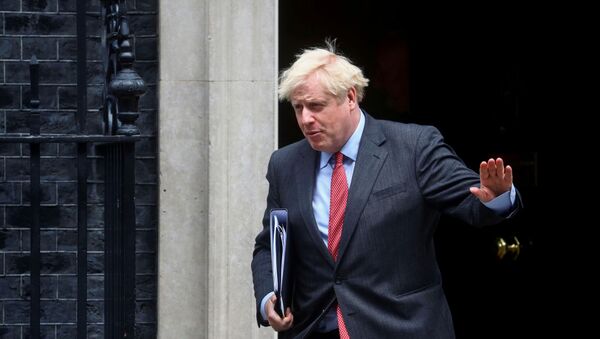The problem which was reportedly caused by a Microsoft Excel spreadsheet reaching its maximum file size prompted delays in tracking the contacts of coronavirus positive Britons.
However, some government officials tried to downplay the incident dubbed by the Labour Party as "shambolic": "The glitch that’s happened, everybody who had the result received that result and that’s the most important thing of all", work and pensions secretary Thérèse Coffey told BBC Radio 4’s Today on 5 October. However, even though those who tested positive had been informed, others in close contact with them were not, the BBC highlighted on Monday.
The government is running its Test and Trace system on Microsoft Excel instead of proper database software.
— David Lammy (@DavidLammy) October 5, 2020
This is what they call world-beating? They might as well contact people through MSN Messenger.
Software glitches within the government’s Test and Trace system do not add to people's confidence, according to Dr. Jason Oke, senior statistician at the Nuffield Department of Primary Care Health Sciences, University of Oxford.
"A technical 'glitch' in transferring COVID-19 test results to the reporting dashboards resulted in over 15,000 cases that should have been reported last week being reported in one hit, yesterday", Oke says. "This PHE Joint Medical Advisor Susan Hopkins is quoted as saying that 'this issue did not affect people receiving their COVID-19 test results' and that 'all outstanding cases were immediately transferred to the contact tracing system by 1am on 3rd October and prioritised for contact tracing effectively'".
However, it is unclear at this stage, what effect these delays in reaching the contacts of positive cases will have, the statistician points out, adding that "this will not do anything to help the beleaguered reputation of the government’s test and trace programme".
The fiasco with the NHS covid-19 tests is not something that surprises people who work in IT, argues Kevin Curran, a professor of cyber security at Ulster University, suggesting that the software programme was obviously only created and rolled out in recent months following the coronavirus outbreak.
"Developing computer systems/programs can be difficult at the best of times", the academic explains. "Extensive testing is needed before a live roll-out. There is also the issue of training users on how to use systems. This issue could either have been technical or simply ignorance on behalf of those tasked with inputting data into the system".
While it is not clear how many disparate IT systems are involved and whether the data is held centrally or distributed, "ideally any system like this would have a ‘natural flow’ from the moment a person takes a test – until the result of that test is revealed on the NHS dashboard", according to Curran.
Furthermore, it is preferable that there would never be humans in the loop as they are often the weakest link in computer systems, he elaborates, adding that "it does seem, however, that this is simply an outcome of a ’rushed’ system with poor testing and/or bad user training".
The UK, which has to date registered 505,619 coronavirus cases and 42,440 COVID-related deaths, is facing a second wave of the infection forcing the government to reinstate some restriction measures. On 23 September, UK Prime Minister Boris Johnson informed the public about new tighter rules about wearing masks, attending pubs and working from home. In addition, the National Health Service's COVID-19 contact tracing application was launched in England and Wales on 24 September with the aim of slowing the spread of the virus.
Speaking on the BBC Andrew Marr Show on Sunday, the British premier warned about a “very tough winter” and “bumpy months” ahead.




